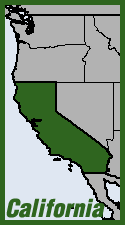 California's medicinal cannabis growers see a downside to the normalization of their profession: the "Wal-Marting" of weed. The Oakland City Council this week will consider licensing four cannabis production facilities to service the medical market. Winning applicants would have to pay $211,000 in annual permit fees, carry $2 million worth of liability insurance and pay up to 8% of gross sales in taxes. This has raised fears that such measures could drive "mom and pop" growers out of business.
California's medicinal cannabis growers see a downside to the normalization of their profession: the "Wal-Marting" of weed. The Oakland City Council this week will consider licensing four cannabis production facilities to service the medical market. Winning applicants would have to pay $211,000 in annual permit fees, carry $2 million worth of liability insurance and pay up to 8% of gross sales in taxes. This has raised fears that such measures could drive "mom and pop" growers out of business.
"Nobody wants to see the McDonald's-ization of cannabis," Dan Scully, one of the 400 "patient-growers" who supply Oakland's largest medicinal dispensary, Harborside Health Center, grumbled to the Associated Press after a City Council committee gave the blueprint preliminary approval last week. "I would compare it to how a small business feels about shutting down its business and going to work at Wal-Mart. Who would be attracted to that?"
The proposal's supporters—"including entrepreneurs more disposed to neckties than tie-dye," in AP's words—counter that unregulated growers are more likely to be motivated purely by profit and produce inferior product. "The large-scale grow facilities that are being proposed with this ordinance will create hundreds of jobs for the city," said Ryan Indigo Warman, who teaches cultivation techniques at iGrow, a hydroponics store whose owners plan to apply for one of the four permits (dubbed the "Wal-Mart of Weed" in the San Francisco Chronicle earlier this year). "The ordinance is good for Oakland, and anyone who says otherwise is only protecting their own interests."
Council members Rebecca Kaplan and Larry Reid, who introduced the plan, have pitched it as a public safety measure. The Oakland fire department blames a dramatic rise in the number of electrical fires between 2006 and 2009 in part to indoor grow operations with improperly wired fans and lights. The police department says eight robberies, seven burglaries and two murders have been linked to grow ops in the last two years.
Reid and Kaplan also are open about their desire to have the city, which last week laid off 80 police officers to save money, cash in on the cannabis industry it has allowed to thrive. Oakland's four dispensaries did $28 million in business last year. If sales remain constant, the city will get $1.5 million this year from a dispensary business tax that voters adopted last summer. A similar tax on wholesale pot sales from the permitted grow sites would bring in more than twice that amount, the city administrator's office estimates.
"Allowing medical cannabis and medical cannabis products to be produced in a responsible, aboveboard and legitimate way will be a benefit to the patients, to the workers and to the people of Oakland," Kaplan said. (AP, July 18)







Comments
Oakland controversy makes New York Times
A July 16 story in the New York Times, "Proposal for Marijuana Factories Prompts a Battle for Control," sheds some light on how the lines are drawn in Oakland. Harborside apparently opposes the pending bill:
And there has been some unseemly sniping between Harborside and AgraMed:
Urban dystopia in Oakland
The police lay-offs are shown in a stark light given the recent riots and shoot-outs in Oakland, even amid social progress on the cannabis front...
Urban dystopia in Oakland redux
The Fruitvale BART station is the same where Oscar Grant was killed last year... From the San Francisco Chronicle, July 18: